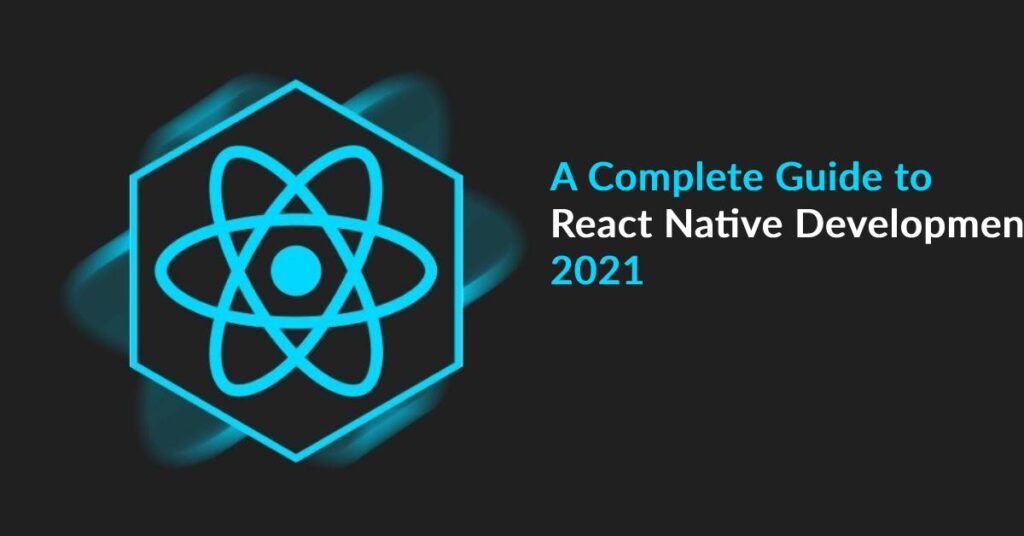A framework which effortlessly works on different platforms without compromising the speed and efficiency? Sounds like a dream? Not anymore. Meet React Native tools, Facebook’s innovation that is making cross-platform mobile app development a smooth experience.
Today, businesses are investing in cross platform app development to target the audiences by harnessing the popularity of iOS and Android platforms. Because of this, developers can create an app that will suit both markets and will save their team time and money.
In this blog, we will provide you with a comprehensive guide on React Native Development. But before we begin, let’s first understand the meaning of React.
What is React Native?
React Native is an open-source application framework that is released by Facebook as an app- based follow up to their web development framework React. It allows building cross-platform mobile applications with JavaScript saving you from learning platform-specific languages like Swift and Kotlin.
React Native is an amazing cross-platform framework that delivers multi-platform performance without compromising the UI UX experience. Facebook, Instagram, Bloomberg, UberEATS, Airbnb, etc. are a few popular use cases of React Native across the IT world.
But before you add React Native to your tech stack, let’s look at some popular React libraries you should be familiar with.
React native libraries
Today, we can find thousands of React Native component libraries in the market. But choosing a suitable one is not a simple task as you should be careful to choose. You should only select the most up-to-date and better-performing ones that fit your use case.
That is why you need to check out the top five React Native libraries:
1. UI Kitten
In the initial phase of your React Native app development, you can use UI kitten. UI Kitten contains almost 20 multi-purpose functions that make the visual look more appealing. Besides this, UI Kitten has numerous in-built themes that provide a lot of choices that help you give a sleek look to your app.
2. NativeBase
NativeBase is a robust app development framework that helps the developers to create excellent native apps that can seamlessly work on mobile frameworks. Generally, these modules are more focused on an app’s look, feel and UI.
3. Vector Icon
Vector Icon is a comprehensive library that facilitates the builders to add icons in applications which may comprise 3000+ icons. Moreover, builders can choose the icons that are required for developing the app.
4. Lottie
Lottie is a free of cost JSON supported library that equips the developers to add animations in the app. Since the animation size is small, app management becomes easier. This also makes the app’s interface easy, simple, and more exciting.
5. Ignite
Ignite is a CLI (Command-Line Interface) that is considered as a native app starter kit. It comes with the default Native boilerplate and it is free of cost. Furthermore, it gets easily installed and helps the developers in building apps.
React Native Tools
After a detailed discussion of React Native libraries, you should look at the popular React Native development tools, before you hire React Native developers for your next project. Some of these React Native developer tools are useful for beginners and others are useful for experienced developers:

1. Webstorm
Webstorm is a lightweight Javascript IDE and Typescript development which is equipped with complex server-side development and client-side development with Node.JS. It helps you to write high-quality codes in minimal time, regardless of the project complexity.
2. Atom
Launched by GitHub in 2014, Atom is an open source text editor that supports Linux, Windows and Mac. Besides this, Atom provides several other services such as bespoke designs, themes, multiple file navigation, in-built package manager, and cross platform editing.
3. Nuclide
Nuclide is a free of cost React Native tool which was developed by Facebook in 2015. It provides a cluster of services such as Remote and Javascript development, working sets, Hack development, mercurial support, task runner, etc.
4. Visual Studio Code
Visual Studio Code is a brilliant combination of IntelliSense code completion and debugging and resource code editor. This tool supports TypeScript, JavaScript, and Node.JS, Java, PHP, C#, C++, and Python. It also supports runtimes like .NET and Unity.
5. Redux
Developed by Dan Abramov and Andrew Clark, Redux enables the developers to build applications that can run on front-end and native platforms. Furthermore, React provides live code editing and time-travel debugger to its users.
5 remarkable benefits of using React Native for your project
React Native is cross-platform, cost-effective, has fast development time, and assures high performance. Moreover, it is widely accepted as among the top mobile app development frameworks in today’s time.
Let us understand the benefits of React Native development services in detail:
1. Easy to reusable codes
Code reusability is the most amazing benefit of using React Native to build cutting edge mobile applications. React Native treats the building blocks as native components and compiles them directly into the native languages of the respective OS.
2. Robust modular architecture
Modular architecture can upgrade and update React Native apps by separating them modules that are independent and interchangeable. This provides a great flexibility for the development team to combine parts of codes written in React Native.
3. Compatible with third-party plug-ins
Because of constant developments in React Native platform, developers might face a lack of certain components. However, React Native overcomes this gap by providing a great flexibility and a better scope for customisation via third-party plugins.
4. Hot reloading feature
This is one of the most sought-after benefits of using React Native. It allows developers to see the real-time code changes on the app screen. Also, hot reloading will patch the changed code to maintain the state of your app so that you will not lose it.
5. Declarative coding style
Declarative coding style focuses on what rather than the how part. It makes it easier for the developers to understand React Native and simplifies coding a lot. Developers can understand everything by just looking at the code.
Wrapping Up
The future of React Native is bright. It is an exciting framework that enables web developers to create successful apps. It enables faster mobile development and efficient code sharing without compromising the product quality.
High efficiency and low costs are the attributes that make work exciting for armies of developers. Supported by the biggest players on the market, this technology will probably shine out in the future.



